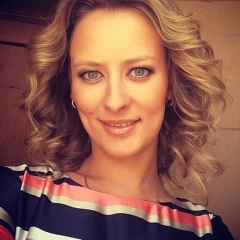Итак, давайте разбираться.
1. Во-первых, необходимо уяснить, что в исследуемом языке существуют глаголы:
1.1 неопределенные (Indefinite), то есть неизвестно, пьешь ты или не пьешь.
1.2 длительные (Continuous), то есть ты пьешь и находишься в состоянии
глубокого запоя.
1.3 завершенные (Perfect), то есть ты либо уже вышел из запоя, либо уже
окончательно напился и вырубился.
2. Во-вторых, существует объективное
2.1 настоящее (Present) - ваше отношение к спиртному;
2.2 прошлое (Past) - темное или светлое;
2.3 будущее (Future) - то, что вам светит: цирроз печени, наркологический
диспансер, белая горячка и т.п.
3. Теперь перемешать, но не взбалтывать:
3.1. Present
3.1.1. Present Indefinite (настоящее неопределенное) см. выше Пример: I vodka every day.- Я пью водку каждый день. Вместо every day можно употреблять выражения: usually, seldom, often, from time to time, from melkaya posuda, bolshimi glotkamy...
3.1.2. Present Continuous (настоящее длительное)
Пример: I am vodking now. - Я пью водку сейчас.
Для эмфатического усиления с этим временем можно употреблять наречия
предыдущего: He is constantly vodking! - Он полный синяк!
3.1.3. Present Perfect (настоящее завершенное)
Пример: I have already vodked.- Я уже нажрамшись. (В ответ на предложение выпить).
3.1.4. Present Perfect Continuous (настоящее завершенно-продолженное)
Пример: I have been vodking since childhood. - Я пью водку с детства. (тип inclusive) Я пил водку с детства (но уже не пью) (тип exclusive).
3.2. Past
3.2.1. Past Indefinite (прошедшее неопределенное)
Пример: I vodked yesterday.- Я напился вчера. (Не путать со временем 3.1.3., там ты напился только что).
3.2.2. Past Continuous (прошедшее длительное) Часто употребляется, как
придаточное предложение к главному во времени 3.2.1.
Пример: Unfortunanely, I was vodking at the moment my wife came. - К несчастью я пил водку в тот момент, когда моя жена вошла (последствия можно себе представить).
3.2.3. Past Perfect (прошедшее завершенное) Также употребляется, как
придаточное.
Пример: I had already vodked when my wife came. - Я уже упился, когда вошла моя жена (так что спорить со мной было бесполезно).
3.2.4. Past Perfect Continuous (прошедшее завершенно-продолженное)
Пример: I had been vodking for about a month when my wife came.- Я пил водку уже около месяца, когда вошла моя жена (спрашивается, где же она шлялась все это время)?
3.3. Future
3.3.1. Future Indefinite (будущее неопределенное)
Пример: I will vodka tomorrow.- Я буду пить водку завтра.
Примечание: В придаточных предложениях времени и условия (то есть при
отсутствии подходящего времени и условий) вместо времени 3.3.1. употребляется
время 3.1.1.: If I vodka tomorrow I will be sick the day after tomorrow.- Если
я выпью завтра, я буду болеть послезавтра.
3.3.2. Future Continuous (будущее длительное)
Пример: I will be vodking tomorrow at 5.- Я буду заниматься употреблением горячительных напитков завтра в пять. Примечание: При горячем желании опохмелиться вместо времени 3.3.1. можно употреблять время 3.3.2.:
Soon (soon) I will be vodking.- Скоро! Скоро я буду пить водку!
3.3.3. Future Perfect (будущее завершенное) Употребляется при планировании
состояния опьянения.
Пример: Tomorrow by 5 o"clock I will have vodked. - Завтра к пяти я буду нажрамшись (что позволяет забыть о своих проблемах после пяти).
3.3.4. Future Perfect Continuous (будущее завершенно-длительное)
Пример: By tomorrow morning I will have been vodking for a term.- К завтрашнему утру, я буду пить водку семестр.
P.S. Хотелось бы сделать махонькое дополнение: существует ещё одно время Future in the Past. Пример: Would you vodka in the children garden? - Хотели бы вы
испивать белую в детском саду?
1. Во-первых, необходимо уяснить, что в исследуемом языке существуют глаголы:
1.1 неопределенные (Indefinite), то есть неизвестно, пьешь ты или не пьешь.
1.2 длительные (Continuous), то есть ты пьешь и находишься в состоянии
глубокого запоя.
1.3 завершенные (Perfect), то есть ты либо уже вышел из запоя, либо уже
окончательно напился и вырубился.
2. Во-вторых, существует объективное
2.1 настоящее (Present) - ваше отношение к спиртному;
2.2 прошлое (Past) - темное или светлое;
2.3 будущее (Future) - то, что вам светит: цирроз печени, наркологический
диспансер, белая горячка и т.п.
3. Теперь перемешать, но не взбалтывать:
3.1. Present
3.1.1. Present Indefinite (настоящее неопределенное) см. выше Пример: I vodka every day.- Я пью водку каждый день. Вместо every day можно употреблять выражения: usually, seldom, often, from time to time, from melkaya posuda, bolshimi glotkamy...
3.1.2. Present Continuous (настоящее длительное)
Пример: I am vodking now. - Я пью водку сейчас.
Для эмфатического усиления с этим временем можно употреблять наречия
предыдущего: He is constantly vodking! - Он полный синяк!
3.1.3. Present Perfect (настоящее завершенное)
Пример: I have already vodked.- Я уже нажрамшись. (В ответ на предложение выпить).
3.1.4. Present Perfect Continuous (настоящее завершенно-продолженное)
Пример: I have been vodking since childhood. - Я пью водку с детства. (тип inclusive) Я пил водку с детства (но уже не пью) (тип exclusive).
3.2. Past
3.2.1. Past Indefinite (прошедшее неопределенное)
Пример: I vodked yesterday.- Я напился вчера. (Не путать со временем 3.1.3., там ты напился только что).
3.2.2. Past Continuous (прошедшее длительное) Часто употребляется, как
придаточное предложение к главному во времени 3.2.1.
Пример: Unfortunanely, I was vodking at the moment my wife came. - К несчастью я пил водку в тот момент, когда моя жена вошла (последствия можно себе представить).
3.2.3. Past Perfect (прошедшее завершенное) Также употребляется, как
придаточное.
Пример: I had already vodked when my wife came. - Я уже упился, когда вошла моя жена (так что спорить со мной было бесполезно).
3.2.4. Past Perfect Continuous (прошедшее завершенно-продолженное)
Пример: I had been vodking for about a month when my wife came.- Я пил водку уже около месяца, когда вошла моя жена (спрашивается, где же она шлялась все это время)?
3.3. Future
3.3.1. Future Indefinite (будущее неопределенное)
Пример: I will vodka tomorrow.- Я буду пить водку завтра.
Примечание: В придаточных предложениях времени и условия (то есть при
отсутствии подходящего времени и условий) вместо времени 3.3.1. употребляется
время 3.1.1.: If I vodka tomorrow I will be sick the day after tomorrow.- Если
я выпью завтра, я буду болеть послезавтра.
3.3.2. Future Continuous (будущее длительное)
Пример: I will be vodking tomorrow at 5.- Я буду заниматься употреблением горячительных напитков завтра в пять. Примечание: При горячем желании опохмелиться вместо времени 3.3.1. можно употреблять время 3.3.2.:
Soon (soon) I will be vodking.- Скоро! Скоро я буду пить водку!
3.3.3. Future Perfect (будущее завершенное) Употребляется при планировании
состояния опьянения.
Пример: Tomorrow by 5 o"clock I will have vodked. - Завтра к пяти я буду нажрамшись (что позволяет забыть о своих проблемах после пяти).
3.3.4. Future Perfect Continuous (будущее завершенно-длительное)
Пример: By tomorrow morning I will have been vodking for a term.- К завтрашнему утру, я буду пить водку семестр.
P.S. Хотелось бы сделать махонькое дополнение: существует ещё одно время Future in the Past. Пример: Would you vodka in the children garden? - Хотели бы вы
испивать белую в детском саду?
So, let's understand.
1. First, it is necessary to understand that there are verbs in the studied language:
1.1 indefinite, that is, it is not known whether you drink or do not drink.
1.2 long (Continuous), that is, you drink and you are able
deep binge
1.3 completed (Perfect), that is, you have either already left the binge or already
finally got drunk and passed out.
2. Secondly, there is an objective
2.1 Present (Present) - your attitude to alcohol;
2.2 past (Past) - dark or light;
2.3 Future (Future) - what you shine: liver cirrhosis, substance abuse
dispensary, delirium tremens, etc.
3. Now mix, but do not stir:
3.1. Present
3.1.1. Present Indefinite (present indefinite) see above Example: I vodka every day .- I drink vodka every day. Instead of every day, you can use the expression: usually, seldom, often, from time to time, from melkaya posuda, bolshimi glotkamy ...
3.1.2. Present Continuous
Example: I am vodking now. - I drink vodka now.
For emphatic gain with this time you can use adverbs
previous: He is constantly vodking! - He is a complete bruise!
3.1.3. Present Perfect (currently completed)
Example: I have already vodked. (In response to the offer to drink).
3.1.4. Present Perfect Continuous
Example: I have been vodking since childhood. - I have been drinking vodka since childhood. (inclusive type) I have been drinking vodka since childhood (but no longer drinking) (exclusive type).
3.2. Past
3.2.1. Past Indefinite (past indefinite)
Example: I vodked yesterday.- I got drunk yesterday. (Not to be confused with time 3.1.3., There you just got drunk).
3.2.2. Past Continuous (past durable) Often used as
subordinate clause to the main in time 3.2.1.
Example: Unfortunanely, I was vodking at the moment my wife came. - Unfortunately, I drank vodka at the moment when my wife entered (the consequences can be imagined).
3.2.3. Past Perfect (past complete) Also used as
subordinate.
Example: I had already vodked when my wife came. - I already drunk when my wife came in (so it was useless to argue with me).
3.2.4. Past Perfect Continuous (Past Completed)
Example: I had been drinking vodka for about a month when my wife came in (one wonders, where has she been hanging out all this time)?
3.3. Future
3.3.1. Future Indefinite (future uncertain)
Example: I will vodka tomorrow .- I will drink vodka tomorrow.
Note: In subordinate clauses, time and conditions (i.e.
lack of suitable time and conditions) instead of time 3.3.1. is used
time 3.1.1 .: If I vodka tomorrow I will be the day after tomorrow.- If
I will drink tomorrow, I will be sick the day after tomorrow.
3.3.2. Future Continuous (future long)
Example: I will be vodking tomorrow at 5.- I will be engaged in the use of strong drinks tomorrow at five. Note: If you are keen to sober up instead of time 3.3.1. You can use the time 3.3.2 .:
Soon (soon) I will be vodking.- Soon! Soon I will drink vodka!
3.3.3. Future Perfect (future complete) Used when planning
intoxication.
Example: Tomorrow by 5 o "clock I will have vodked. - Tomorrow at five I’ll be pissed (which allows you to forget about your problems after five).
3.3.4. Future Perfect Continuous (the long-term future)
Example: By tomorrow morning I will have been vodking for a term. - By tomorrow morning, I'll be drinking vodka for the semester.
P.S. I would like to make a tiny addition: there is another time Future in the Past. Example: Would you vodka in the children garden? - Do you want
to drink white in kindergarten?
1. First, it is necessary to understand that there are verbs in the studied language:
1.1 indefinite, that is, it is not known whether you drink or do not drink.
1.2 long (Continuous), that is, you drink and you are able
deep binge
1.3 completed (Perfect), that is, you have either already left the binge or already
finally got drunk and passed out.
2. Secondly, there is an objective
2.1 Present (Present) - your attitude to alcohol;
2.2 past (Past) - dark or light;
2.3 Future (Future) - what you shine: liver cirrhosis, substance abuse
dispensary, delirium tremens, etc.
3. Now mix, but do not stir:
3.1. Present
3.1.1. Present Indefinite (present indefinite) see above Example: I vodka every day .- I drink vodka every day. Instead of every day, you can use the expression: usually, seldom, often, from time to time, from melkaya posuda, bolshimi glotkamy ...
3.1.2. Present Continuous
Example: I am vodking now. - I drink vodka now.
For emphatic gain with this time you can use adverbs
previous: He is constantly vodking! - He is a complete bruise!
3.1.3. Present Perfect (currently completed)
Example: I have already vodked. (In response to the offer to drink).
3.1.4. Present Perfect Continuous
Example: I have been vodking since childhood. - I have been drinking vodka since childhood. (inclusive type) I have been drinking vodka since childhood (but no longer drinking) (exclusive type).
3.2. Past
3.2.1. Past Indefinite (past indefinite)
Example: I vodked yesterday.- I got drunk yesterday. (Not to be confused with time 3.1.3., There you just got drunk).
3.2.2. Past Continuous (past durable) Often used as
subordinate clause to the main in time 3.2.1.
Example: Unfortunanely, I was vodking at the moment my wife came. - Unfortunately, I drank vodka at the moment when my wife entered (the consequences can be imagined).
3.2.3. Past Perfect (past complete) Also used as
subordinate.
Example: I had already vodked when my wife came. - I already drunk when my wife came in (so it was useless to argue with me).
3.2.4. Past Perfect Continuous (Past Completed)
Example: I had been drinking vodka for about a month when my wife came in (one wonders, where has she been hanging out all this time)?
3.3. Future
3.3.1. Future Indefinite (future uncertain)
Example: I will vodka tomorrow .- I will drink vodka tomorrow.
Note: In subordinate clauses, time and conditions (i.e.
lack of suitable time and conditions) instead of time 3.3.1. is used
time 3.1.1 .: If I vodka tomorrow I will be the day after tomorrow.- If
I will drink tomorrow, I will be sick the day after tomorrow.
3.3.2. Future Continuous (future long)
Example: I will be vodking tomorrow at 5.- I will be engaged in the use of strong drinks tomorrow at five. Note: If you are keen to sober up instead of time 3.3.1. You can use the time 3.3.2 .:
Soon (soon) I will be vodking.- Soon! Soon I will drink vodka!
3.3.3. Future Perfect (future complete) Used when planning
intoxication.
Example: Tomorrow by 5 o "clock I will have vodked. - Tomorrow at five I’ll be pissed (which allows you to forget about your problems after five).
3.3.4. Future Perfect Continuous (the long-term future)
Example: By tomorrow morning I will have been vodking for a term. - By tomorrow morning, I'll be drinking vodka for the semester.
P.S. I would like to make a tiny addition: there is another time Future in the Past. Example: Would you vodka in the children garden? - Do you want
to drink white in kindergarten?
У записи 2 лайков,
0 репостов.
0 репостов.
Эту запись оставил(а) на своей стене Настя Акимова






















